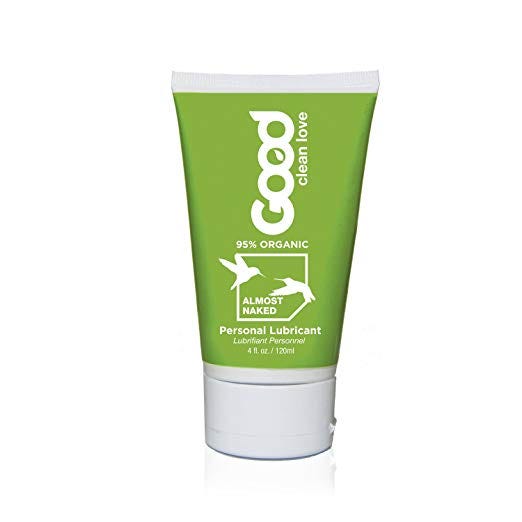
Sex is supposed to be an “omg-this-feels-so-good” kind of experience, not one that leaves you in agony. But according to The American College of Obstetricians and Gynecologists, nearly three out of four women experience pain during intercourse at some point in their lives.
Whether the pain is fleeting or chronic, it can be incredibly frustrating. What’s worse, plenty of women just deal with it, rather than seek help, says ob-gyn Tami M. Prince, M.D. “But if you are experiencing pain during sex, tell your doctor. Do not suffer in silence.”
And if your doctor hasn’t been helpful regarding your pain in the past, “find a doctor you can really talk to that is nonjudgemental,” advises Prince. “Don’t hide information out of embarrassment. We are here for guidance, support and treatment.” Ultimately, a good doctor can help you suss out if any of the issues below are to blame.
1. A medical problem is getting in the way.
Pain during sex is often prompted by a medical condition, says ob-gyn Draion M. Burch, D.O. One common issue: vaginitis, or inflammation of the vagina caused by a yeast infection or sexually transmitted disease (STD).

“There are also structural defects that cause pain and may ultimately require surgery, such as a tilted uterus,” he notes.
And, in some cases, the pain may be caused by other “outlier conditions” like endometriosis, bladder infections, ovarian cysts, and uterine fibroids, says Prince.
If your pain is caused by something like this, your doctor will be able to recommend your best treatment option—whether it’s medication, surgery, or other strategies for managing symptoms.
2. Your hormones may be off.
“You may also have vaginal dryness caused by a drop in estrogen levels due to stress, medication, or menopause,” Burch explains.
Estrogen is what keeps your vagina nice and lubricated, so any drops in this hormone may make it painful to have intercourse.
A decrease in estrogen can also be triggered by a hysterectomy (which often leads to early menopause), radiation or chemotherapy for cancer, or surgical removal of the ovaries.
If this is the case, again, it’s crucial to see your doctor, who may recommend lifestyle changes or even hormone replacement therapy.
3. You’re not lubing up.

Don’t underestimate the power of lube. Even though your vagina naturally lubricates, whether it’s due to the aforementioned medical reasons or otherwise, many women experience dryness down there. The good news: Lube may help with your woes, says Prince.
That’s because, when you’re dry, it can cause friction between your vagina and your partner’s penis, dildo, strap-on—whatever it may be.
Prince recommends choosing “a lubrication that is close to a natural pH balance to avoid allergic reactions, and never use saliva or vaseline.” Some great options are Good Clean Lube or Sliquid H20.
4. You’re getting in the wrong positions.
If sex is painful or uncomfortable, it may just be that the position you’re choosing doesn’t feel great for you, Prince says. She also notes that if your partner has a curved penis, some positions may feel a little, well, unpleasant. Every woman is different, therefore not every woman is going to enjoy doggy style or cowgirl.
If you find a certain sex position isn’t making you feel great down there, try switching it up. Prince recommends missionary and spoon, since patients have reported these are the most comfortable.
5. Your partner is…big.
For the record: Bigger is not always better, especially when it comes to penises. Some women have trouble adjusting to a large penis, says Prince. But that doesn’t mean you need to ditch your partner just because they’re especially well-endowed. If you suspect this may be the issue, try some of these sex positions for big penises.
6. You have unresolved sexual trauma.
“Women may experience pain during sex due to fear of intercourse after sexual assault,” says Prince. In some cases, the psychological trauma can cause your vaginal muscles to involuntary tighten or spasm during sex, which is commonly referred to as vaginismus.

If this is the case, Prince refers clients to a psychiatrist, or recommends “biofeedback to retrain their vaginal muscles,” she says. “I also give my patients vaginal dilators to practice with at home.”
7. Your relationship isn’t working for you.
“For women, sexual arousal starts with the brain,” explains Burch. “If there is poor communication, or they are being demeaned in any way by their partner, they are not likely to have enjoyable sex.”
So if there’s trouble in your relationship, Burch recommends seeking couples’ counseling, to address any issues outside of the bedroom, first.
8. You have old-school hygiene practices.
“Some women are taught to douche and use feminine wipes,” says Burch. But this may be causing your pain during sex, as it can lead to bacterial vaginosis,” or inflammation caused by an overgrowth of bad bacteria in the vagina, he explains.
Even if the long-term solution is as simple as changing your grooming habits, medical intervention may be necessary. “It is not always an instant fix, so do not self-medicate,” he advises. “See a doctor.”
Source: Read Full Article
